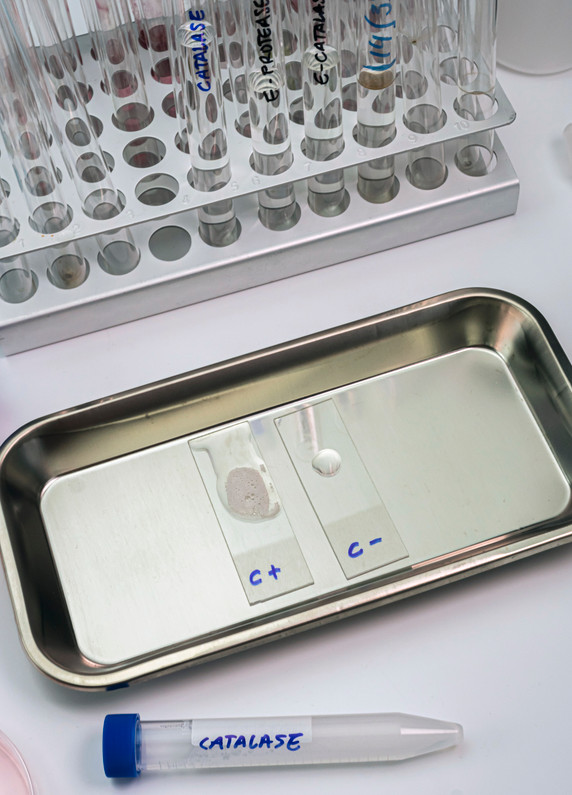Catalase: The Bodyguard Against Fizz and Fury - How It Protects Your Cells
Keywords: Catalase, enzyme, hydrogen peroxide, reactive oxygen species (ROS), oxidative stress, antioxidants, cellular damage, inflammation, aging, fruits and vegetables.
Imagine your body as a bustling city constantly working. But with all this activity, there's bound to be some mess, right? One type of mess comes in the form of reactive oxygen species (ROS), harmful molecules produced during normal cellular processes. Just like a city needs a clean-up crew, your body relies on an enzyme called catalase to keep things in check.
What is Catalase?
Catalase is a superhero enzyme found in nearly all living organisms. It acts like a firefighter, quickly breaking down a specific type of cellular mess – hydrogen peroxide (H₂O₂). H₂O₂ might sound harmless, but at high levels, it can damage important cellular structures like proteins and DNA. Think of it like fizzy water – a little is refreshing, but too much can cause a chaotic mess!
Catalase to the Rescue!
Catalase swoops in and neutralizes H₂O₂, converting it into two harmless molecules: water (H₂O) and oxygen (O₂). It's like having a special tool that transforms fizzy water back into plain, stable water, restoring cellular peace.
Why is Catalase Important?
Catalase plays a crucial role in protecting cells from oxidative stress, a condition caused by an imbalance between ROS production and the body's ability to neutralize them. This imbalance can lead to:
- Cellular damage: Damaged proteins and DNA can disrupt normal cell function.
- Inflammation: Chronic inflammation is linked to various diseases.
- Accelerated aging: Oxidative stress is thought to contribute to the aging process.
Boosting Your Catalase Levels
While your body naturally produces catalase, there are ways to potentially support its activity:
- Diet: Eating plenty of fruits and vegetables rich in antioxidants can help combat oxidative stress.
- Exercise: Regular physical activity can increase catalase levels in some tissues.
- Certain supplements: Some studies suggest specific supplements might offer a slight boost, but consult a healthcare professional before taking them.
Catalase: A Silent Guardian
Though you might not hear about it much, catalase is a vital player in maintaining cellular health. By neutralizing H₂O₂, it helps protect your cells from damage and contributes to overall well-being. So, next time you enjoy a refreshing drink or witness a city's cleaning crew in action, remember the silent guardian within you – catalase, keeping your cellular world safe from fizzy fury!
Recent Posts
-
Reflections on Our Experience at the Vatican Longevity Summit
On March 24, 2025, the Vatican opened its doors to a remarkable gathering of scientists, ethicists, …25th Mar 2025 -
Gentaur : The Leading Distributor of Applied Biological Materials (ABM) in Belgium and Europe
Driving Scientific Innovation with ABM's Cutting-Edge Products Gentaur has long been the trusted dis …19th Mar 2025 -
From SCSOmics 2024 to 2025 !
From SCSOmics 2024 to 2025: Single-Cell Passion Ignites Again ! We’re still buzzing from Sin …17th Mar 2025




